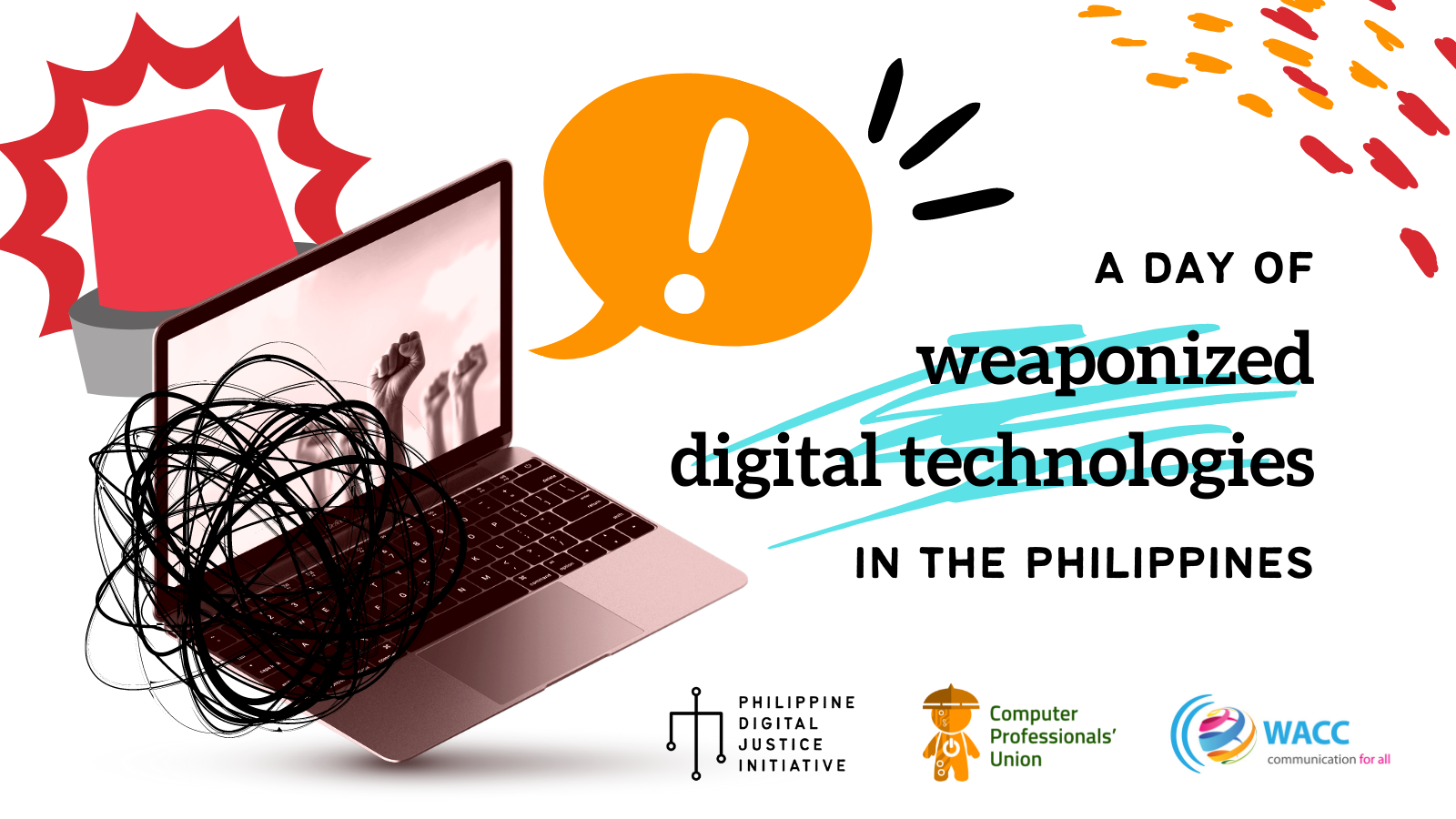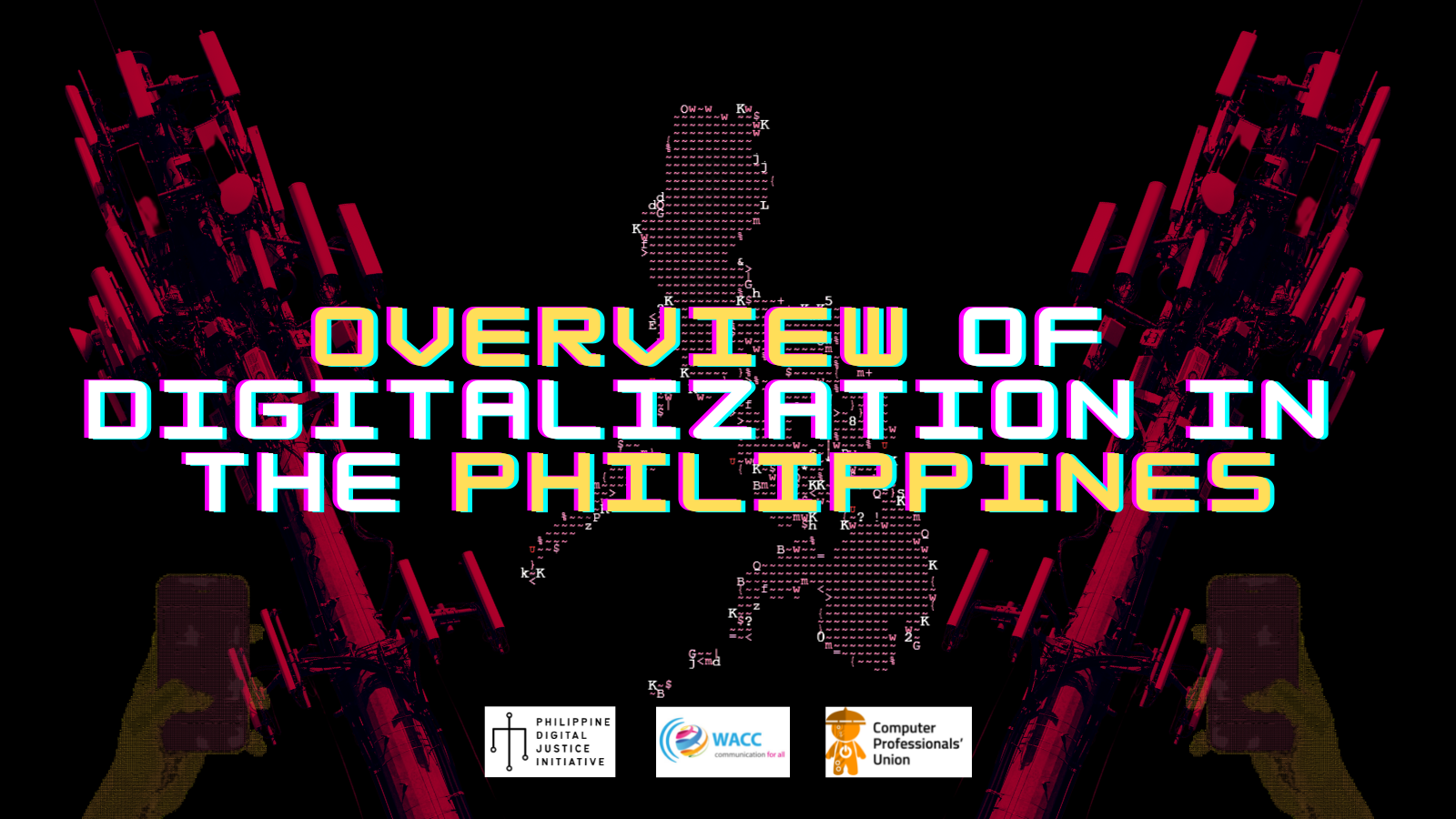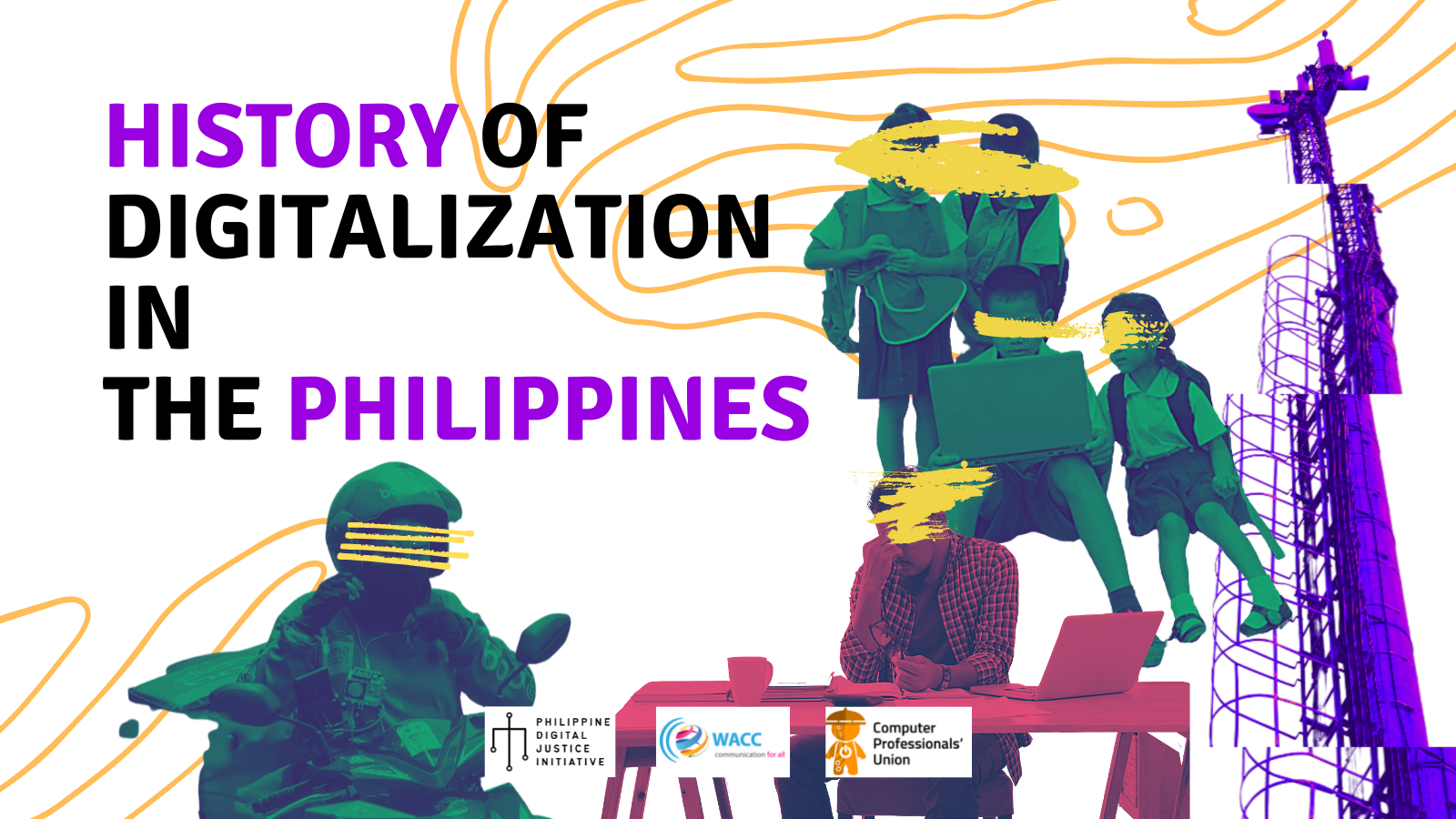Publications
A Repressive Digital Rights Landscape in the Philippines
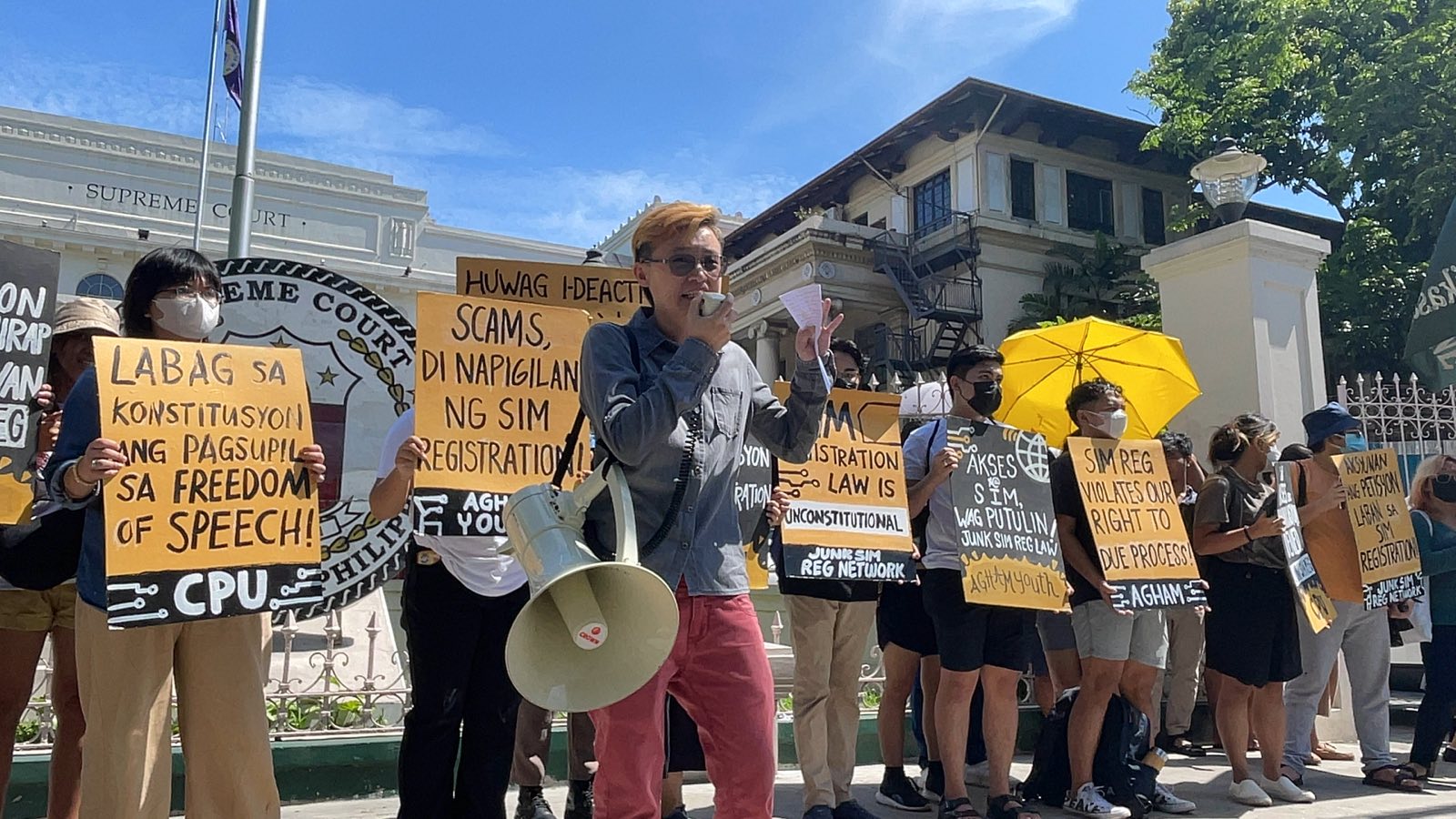
In the last decade, the Philippines has seen a rapid transformation with the integration of digital technologies in daily life. Platforms that facilitate precarious working conditions and outsourced labor have become more and more popular, especially during the COVID-19 pandemic. Many businesses have geared towards remote and online conduct. Meanwhile, the government is fast-tracking its digital transformation. These create conditions for Filipinos to become more dependent on digital technologies and the Internet.
Philippine government agencies and policies have not been able to ensure the protections of Filipinos’ rights in the digital sphere. The Department of Information and Communications Technology (DICT) has proven itself inadequate in securing the nation from cyberattacks, as evidenced by the numerous data breaches and leaks from government institutions. In 2023 alone, there have been at least 5 reported cases of data breaches.
Digitization of Exploitation - Study on the platform workers in the gig economy in the PH
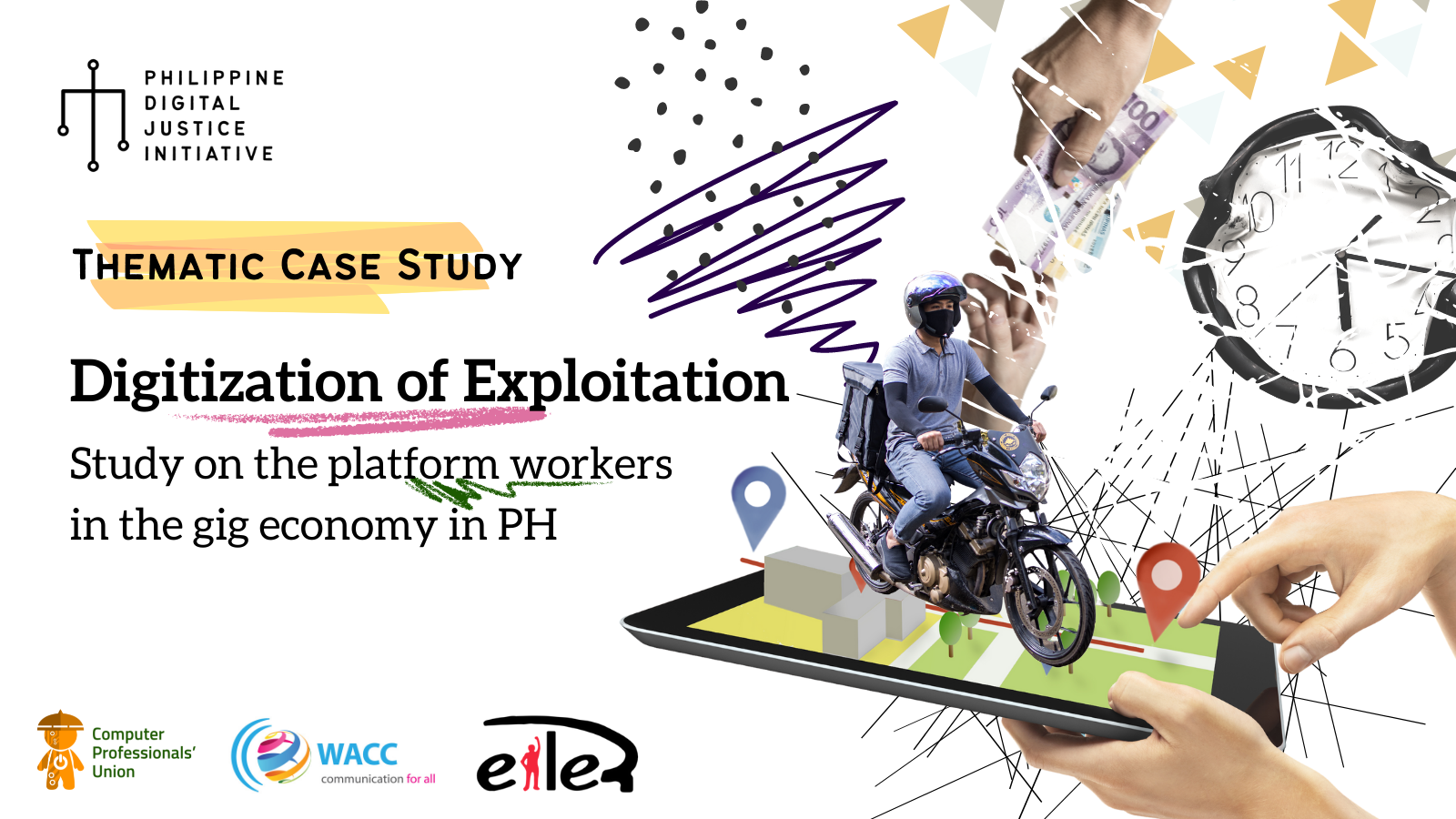
Introduction
With the advent of smart machines alongside the continuous developments in the use of the Internet, further technological advancements in manufacturing and agriculture have been achieved. Advanced production processes have become the talk of the giant technology firms and have gained ground in both the developed and developing countries, albeit unequal in terms. According to economists and industrialists, global production has entered a fourth industrial revolution. As the world constantly welcomes innovations in robotics, artificial intelligence and machine learning, 3D printing, nanotechnology, and other advanced technologies, the possibility of a perfectly efficient production is seemingly inevitable and within reach.
The use of digital platforms has allowed for faster and wider transactions between businesses and consumers, with online-based corporations such as Amazon raking in billions of dollars in profits amid a devastating pandemic. Relations between Labor and Capital, however, grow increasingly antagonistic against a backdrop of economic and social crises that see only a handful surviving and oeven benefitting from.
A Day of Weaponized Digital Technologies in the Philippines
October 6, 2021—Two remarkable events that highlight the Duterte regime’s weaponization of digital technologies to hijack our communications rights took place today.
In the midst of the 6th day of the filing of certificates of candidacy (COC) for the 2022 Philippine National Elections, an emergency alert was broadcast to mobile phones in the vicinity of Sofitel, where the aforementioned activity was being held. However, the alert which is by law used for disaster emergencies contained a message pertaining to a certain BBM—initials of the late dictator Ferdinand Marcos’s son, Bongbong Marcos.
Face of Digital Divide - The Urban Poor Situation in the Philippines during the Covid-19 pandemic
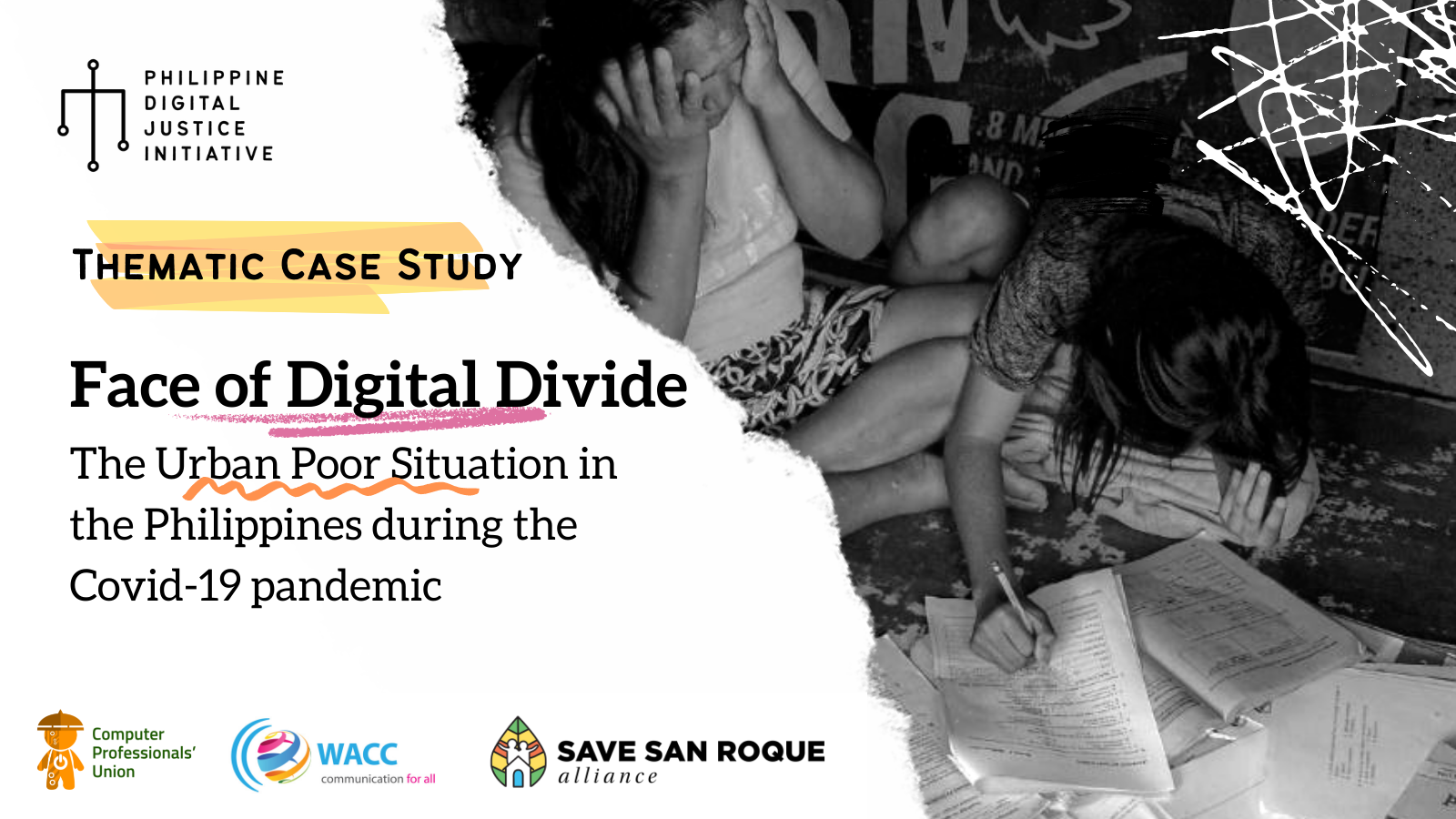
Context
Sitio San Roque is an urban poor settlement located in Barangay Bagong Pag-Asa, North Triangle, Quezon City in the Philippines. It is a property owned by the National Housing Authority, a government agency responsible for public housing in the Philippines. Before the threats of demolition, this urban poor community had about 100,000 residents. They are at risk of completely being eradicated in the area since the 256 hectare land is being converted into a “Mix-Use Community” for residential and commercial use. The ongoing construction of high rise condominiums is caving inch by inch at the difficult yet peaceful community.
Overview of State of Digitalization of Manufacturing Industries and Finance
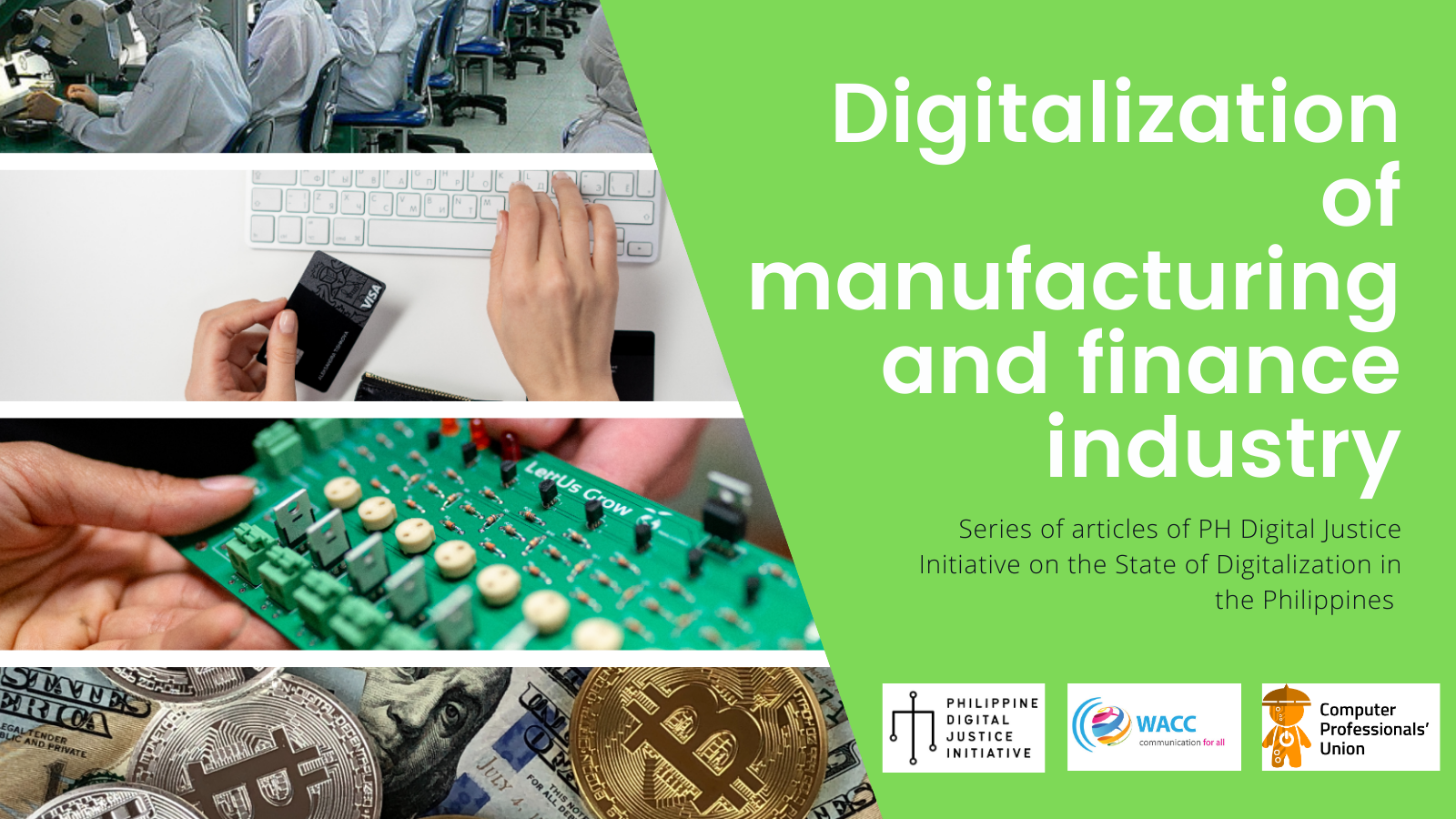
Abstract
This paper discusses and provides a general picture of the state of digitalization in the manufacturing and finance industry of the Philippines. It also lays down the perennial and pressing issues that the two industries are facing in digitizing, as well as the responses of the public and private sector on this phenomenon. The study reveals that although the government and private sector made efforts to digitalize the manufacturing and finance industries, the process of digitalization remains at the outset and concentrated on urban and private companies, rendering the few people to not experience its benefits fully while pushing the majority of the Filipino society to be left behind. The paper also emphasizes that the failure of the Philippine government—both the past and present—to push for national industrialization remains the root cause of the failure to fully take-off for the digitalization of manufacturing and finance industries.
Overview of Digitalization of Service Industry and Government Services in the Philippines
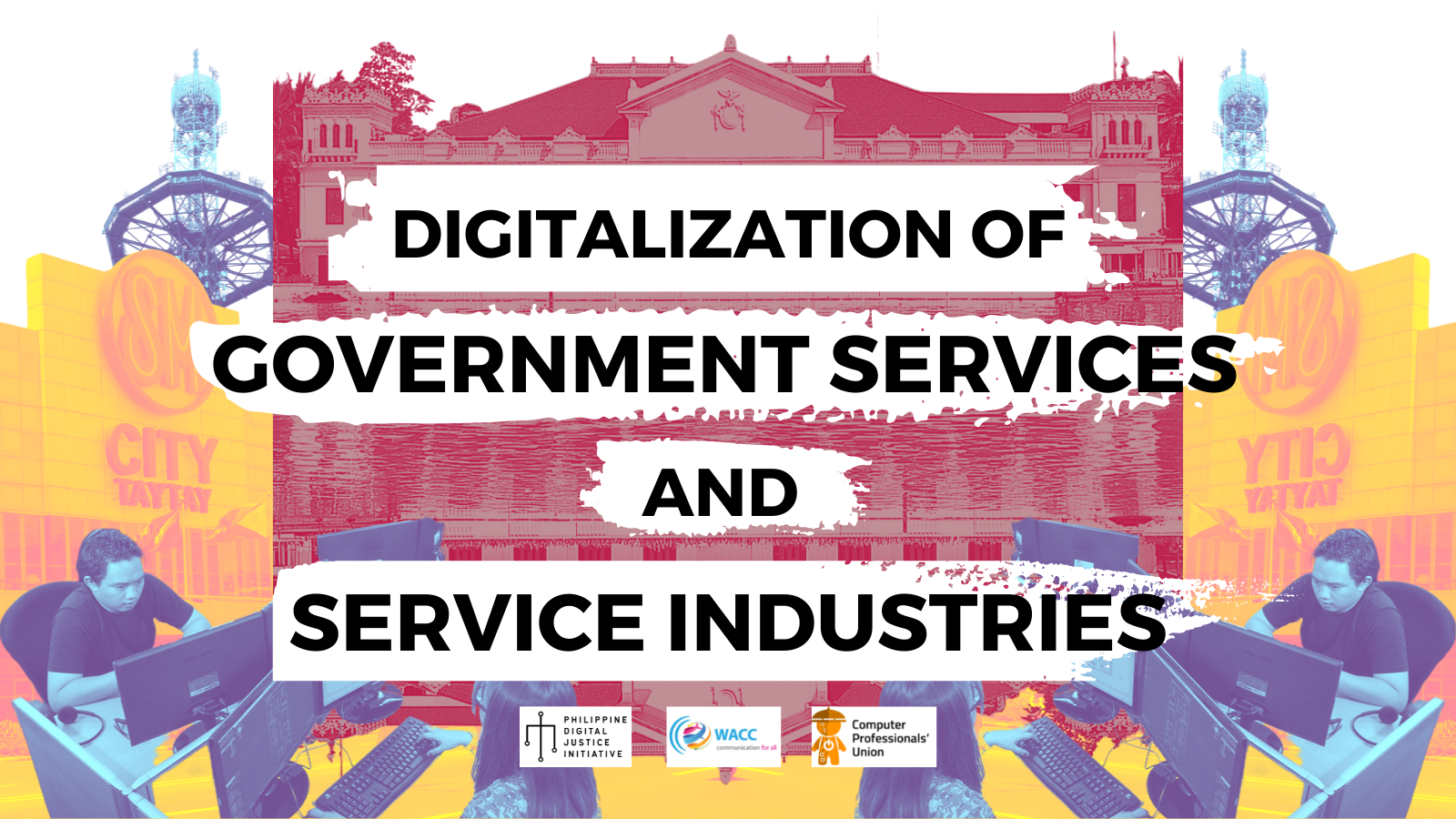
Abstract
The Overview of Digitalization in Government Services and Service Industry discusses the overall state of digitalization, challenges, and future prospects on these two key economic sectors. Although the government services and service industries are two of the most long-standing and important sectors of the economy and society, the process of improvement through digitalization is still sporadic and disintegrated and is poorly performing in comparison with its neighboring countries largely because of poor ICT infrastructure in the Philippines, especially on the side of the former despite of the impetus that the COVID-19 pandemic has brought. The paper suggests that aside from addressing the long-standing issue of poor ICT infrastructure and national industrialization, a shift of focus from the government to maximize digitalization for the people would not only be a beneficial for the people because of the new normal set-up, but would also push the service industry to adapt a similar outlook on their part.
General Overview of Digitalization in the Philippines
Abstract
This paper titled “General Overview of Digitalization in the Philippines” discusses the overall current condition of digitalization in the Philippines and other key related topics. The paper also highlights the current challenges that Philippine society faces amidst the ongoing digitalization and the possible prospects that Philippines may go through in the future. This research highlights that despite the sporadic development in digitalization of the Philippines in some urban areas, the lagging state of overall digital infrastructure has still been a perennial problem and is currently the biggest challenge to maximize the possible benefits of digitalization for the majority of the Filipinos.
History of Philippine Digitalization
Abstract
This paper entitled “History of Digitalization in the Philippines” discusses digitalization in the Philippines with a particular emphasis on the roots and current status of its information and communications technology (ICT). This research suggests that although the Philippines is one of the early colonial countries in Asia-Pacific to obtain and use early-digitized technologies, the foreign-dependent economic model under its colonial masters and neoliberalism-oriented leaders had hampered the industrialization of the country most notably in the 1960s-70s. The lost momentum to industrialize, along with economic policies that are foreign-oriented, caused the Philippines to become dependent on the service industry. The lack of national industry and grand political plan to do so lead the Philippine ICT to be highly reliant on foreign technologies and software which has a negative impact on the pace of current digitalization in the Philippines.

